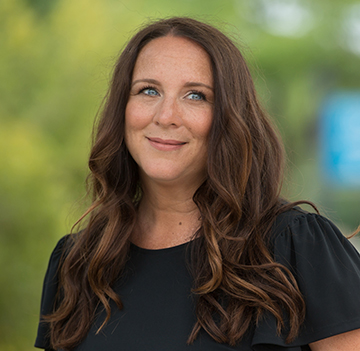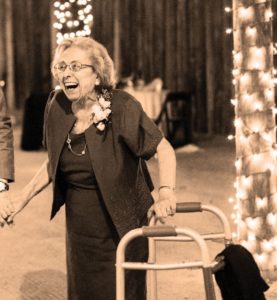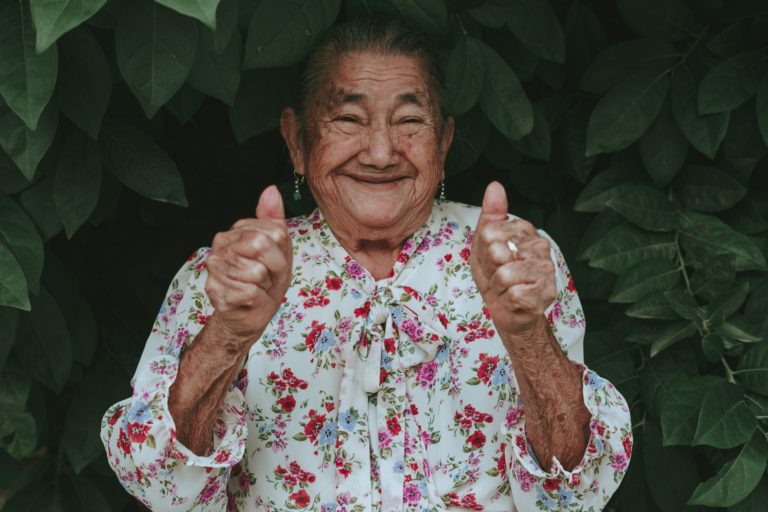
Cathy Cassata specializes in health, mental health, and human behavior. She connects with readers in an insightful and engaging way.
Innovative approaches aim to change the culture of aging in senior communities
Whether your loved one is aging in place or in a community, some organizations are calling for change in the culture of aging. The shift focuses on person-centered care — an approach that treats older adults as decision-making partners in their care, making sure it meets the individual’s
needs and preferences. In contrast, provider-directed care is more regimented, expecting individuals to follow existing routines with little input.
The attitude shift promotes a more positive view of aging.
“Let’s face it, our society has a negative perspective on aging. It’s the only ‘ism’ we have where a person is going to become the thing they are biased against,” says Jeanne Heid-Grubman, administrator with The Village at Victory Lakes, a Franciscan Ministries senior living community in Lindenhurst.
Heid-Grubman is also a past board member of the Pioneer Network, a nonprofit organization that advocates for measures that enable people to thrive, not decline, in a community- based setting.
Treating each resident as an individual is attainable, says Heid-Grubman, who has worked with thousands of older adults during her 44-year career.
“Every person is unique and has a unique lifestyle, background, preferences, weaknesses, strengths, likes, and dislikes. That’s the key to person-centered care — really getting to know that person and honoring the fact that that person is different from anyone you met in your life,” she says.
Communities that follow a person-centered approach avoid a medical model, Heid-Grubman explains.
“Nursing homes were almost built to be like hospitals, yet this is where people go to live the rest of their lives,” she says. “The whole focus was on the physical part of the person — their diagnoses: if they have arthritis, cancer, or heart disease, and also how they function, if they are able to walk or eat by themselves, if they are continent or incontinent.”
The Village at Victory Lakes serves its residents by focusing on assisted, rather than regimented, living and embracing the belief that all older adults deserve to practice self-determination.

So is the case for Catherine Ori, who lived independently in a Highland Park condo for about eight years after her husband passed away. At 90 years old, she moved into The Village at Victory Lakes.
“She’s been there for about 10 years now. We just celebrated her 100th birthday,” says her son, John Menoni.
During her first eight years with Victory Lakes, Ori lived in independent living. She now lives in its skilled nursing facility.
“While in the independent living group, they worked very hard to make sure my mom lived in a personalized environment. From the first day she went there, in the dining room, all the staff knew her first name,” Menoni says. “To me, that was a sign of attempting to personalize her experience and to really get to know her.”
“That’s the key to person-centered care — really getting to know that person.”
The same goes for the care she receives in skilled nursing.
“They really know her, try to relate and talk to her, and keep her busy, which I know can be hard,” Menoni says. “As I approach 80, it’s challenging. So I can’t imagine how challenging it is for someone my mom’s age, but they find a way.”
A person-centered approach is important for not only residents but also staff, Heid-Grubman says.
“Staff is the most important to our residents. To appreciate them and recognize them as individuals makes all the difference in how they [do their jobs],” she says. “They chose to do what I believe is one of the most important jobs in our society.”
Staying social with age
Part of person-centered care means connecting older adults to services, supports, and social engagement so they can remain active.
Evanston-based nonprofit WiseUp does just that, helping seniors live active, vital lives and contribute to their larger community.
During the pandemic, WiseUp has been hosting virtual events, such as happy hours, a weekly current events session, and a humor session in which everyone shares a joke, says Paula Cleave, executive director of the member-led organization.
WiseUp volunteers offer members free services, such as rides to appointments, technology assistance, and in-home help — all to help build community and independence.
“As we get older, we don’t have the day-to-day support we might need, so WiseUp fills that void,” Cleave says. “It’s a way to remain independent and get support from a friendly neighbor.”
While most of its members are aging at home, Cleave says some members live in care communities.
“Just because you move into a community doesn’t mean you want to leave all of your friends behind or stop being involved. WiseUp fulfills the social need and need to be relevant,” she says.
Mather is a nonprofit organization with senior living residences, including a community in Evanston. It also aims to fill a social need and change the way society views aging.
“Creating ways to age well is the guiding principle behind our day-to-day operations, as well as larger initiatives,” says Brenda Schreiber, Mather senior vice president, about
Mather’s senior residences, community-based initiatives, and Mather Institute.
Mather Institute, the research arm of Mather, serves as an innovation incubator that conducts research, partners on studies, and informs aging services professionals about relevant research.
“Today, people are redefining life after 50 with a renewed emphasis on the things that matter most,” Schreiber says. “And we’re right alongside them on the journey to what’s next.”
With such approaches in the Chicago area, innovative organizations are helping to change the view of aging — from surviving to thriving.






